The Analysing Social Change Research Group is dedicated to the methods and theories that underly social research in diverse thematic areas. Contemporary society is experiencing rapid social change, with new and constantly changing social challenges and issues. We are in a period of unprecedented transformation in Irish society economically, politically, socially, legally and culturally. We are witnessing dramatic shifts in work and welfare, social identities, political affiliation and movements, gender relations, family formation and the experience of childhood, political movements, demands for equality and restitution for historical abuses, modes of communication and community formation through the internet and social media and debate about previously silenced and private issues.
It is critical that such social changes are appropriately analysed. To this end the ASC Research Group focused on knowledge production, in the sense of how social change can be conceptualized using different theoretical lenses, and the methods through which data on social change are produced and analysed. While it is inevitable that studies of social change will focus on a dizzying array of particular topics, they share the underlying conceptual question of what is causing such change, what its broader implications are, and how social changes can be mapped.
- Changing patterns of care and socialisation
- Inequality and social justice
- Political change and new political challenges
- Economy, welfare and public administration
- Cultural change
ASC Directors: Dr Susan Flynn
ASC Officers
- Dr Lorraine Bowman-Grieve
- Dr Jacinta Byrne-Doran
- Dr Katie Cagney
- Keira Flanagan
- Dr Niamh Maguire
- Dr John McNamara
- Dr Hazel O'Brien
- Dr Jill O'Mahony
- Dr Méabh Savage
- Michael Tobin
ASC Members
- Dr Christa de Brún
- Dr Suzanne Denieffe
- Dr Fiona Ennis
- Dr Carol Yelverton-Halpin
- Dr Richard Hayes
- Dr Jennifer Kavanagh
- Dr Úna Kealy
- Aaron Kent
- Dayna Killian
- Dr Kate McCarthy
- Dr Jenny O’Connor
- Dr Muireann Prendergast
- Susan Connolly
- Ramon Kassam
- Stephen Murphy
- Ciara Rodgers
- Maire McCafferty
- Don O’Neill
- Richard Milner
- Brenda Murphy
- Sandra Nolan
Researchers within Performing the Region
- Dr Kate McCarthy
- Dr Úna Kealy
- Dr Christa de Brún
- Dr Fiona Ennis
- Dr Richard Hayes
- Aaron Kent
- Dayna Killian
- Dr Jenny O’Connor
Analysing Social Change Publications
2021
Anderson, I, Doherty, K., & O’Mahoney, J. (forthcoming, 2021). Accounting for Rape: Psychology, Feminism and Discourse Analysis in the Study of Sexual Violence, 2nd ed. London: Routledge.
Denieffe S., Castineira C., Denny M., “The Impact of Dragon Boating for Fatigue in Cancer Survivors,” Journal of Nursing Practitioners (In Press).
Doyle, M., Gornicka, B. and Plante, R., (2021). Sex and Sexualities in Ireland: I Doyle, M. (forthcoming, 2021) ‘Visual Culture and Bodily Performances of Irish MSM on Grindr (2021). In: Doyle, M. Gornicka, B and Plante, R, ed Sex and Sexualities. in Ireland: InterdisciplinaryPerspectives. Palgrave MacMillan.
Friend, C., Bowman Grieve, L., Kavanagh, J. & Palace, M. (2020). Fighting Cybercrime: A review of the Irish experience. International Journal of Cyber Criminology, 14 (2), July-December, Open Access).
Holme, I., Joel-Edgar, S., Doyle, M. and Gornicka, B., (forthcoming, 2022). Social media and political participation: Making sense of Digital Feminist Twitter Artifacts in the aftermath of a Belfast Rape Trial and #IBelieveHer. In: R. Hartshorne, V. Benson and J. McAlaney, ed., Handbook of Social Media in Education, Consumer Behavior and Politics. Elsevier.
Interdisciplinary Perspectives. New York: Palgrave-MacMillan.
Maguire, N. (2021) (Forthcoming) ‘Book Review: Sentencing: A Social Process, Rethinking Research and Policy’, Probation Journal 68(2).
O’Brien, J. ‘The Use of Public Houses as a Collective Representation of the Covid-19 Pandemic in Ireland’, Irish Journal of Sociology, 29(2).
O’Brien, J. ‘The Belfast Rape Trial and the Construction of a Public Problem’, in Doyle, Mark, Gornicka, Barbara & Plante, Rebecca (eds) Sex and Sexualities in Ireland: Interdisciplinary Perspectives. London: Palgrave Macmillan. [in press]
O’Brien, J. ‘From Abiding to Accelerating to Anomic: Generational Waves of Change in Irish Drinking Culture, 1845-Present’, in Fenton, Laura & Thurnell-Read, Thomas (eds) Alcohol, Age, Generation and the Life Course. London: Palgrave McMillan. [in press]
O’Brien, J. ‘Controlled Decontrolling – The Role of Culture in Regulating Intoxication’, in Geoffrey Hunt (ed.) Routledge Handbook of Intoxicants and Intoxication. London: Routledge.
Ronan, M., O’Mahoney, J., Cagney, K. A sociocultural analysis of Taoiseach Enda Kenny’s State Apology to the Magdalene Women. Culture & Psychology.
O’Mahoney, J. “The role of born digital data in confronting a difficult and contested past through digital storytelling: The Waterford Memories Project. AI & Society.
Donnelly, M., Stapleton, L. & O’Mahoney, J. (in press, 2021). Born Digital and Marginalisation: An Empirical Study of How Born Digital Data Systems Continue the Legacy of Social Violence towards LGBTQ+ Communities in Ireland. AI & Society.
O’Mahoney, J. The Role of Digital and Public Humanities in Confronting the Past: Survivors’ of Ireland’s Magdalene Laundries Truth Telling. In T. Thomson & A. Schwan, Palgrave Handbook for the Digital and Public Humanities. London: Palgrave.
O’Mahoney, J., McCarthy, K., & Culleton, J. (forthcoming, 2021). Public Performance and Reclaiming Space: Waterford’s Magdalene Laundry. In M. Haughton, E. Pine, & M. McAuliffe, Legacies of the Magdalen Laundries: Commemoration, Gender and Systems of Abuse. Manchester: MUP.
O’Rourke, M., O’Mahoney, J., & O’Donnell, K. (forthcoming, 2021). Institutional abuse in Ireland: Lessons from survivors and legal professionals. In O. Lynch, J. Windle, & Y. Ahmed (Eds.), Nothing about us without us: Giving voice to diversity in Criminological Research. Bristol, UK: Bristol University Press.
O’Mahoney, J. & Anderson, I. (2021). Using narrative analysis to inform about female and male sexual victimisation. In C. Squire (Ed), Stories Changing Lives. Oxford, UK: Oxford University Press.
2020
Bowman Grieve, L. & Herron, S. The And now: Irish Republicanism and Ulster Loyalism online. In Littler, M. & Lee, B. (Eds.), Digital Extremisms: Readings in Violence, Radicalisation and Extremism in the online space. Switzerland: Palgrave Macmillan.
Denieffe , S. Commentary: Purposive sampling: Complex or simple? Research case examples. Journal of Research in Nursing. https://doi.org/10.1177/1744987120928156.
Finn, F. O’Gorman, C., McCarthy, M. Denieffe S., Informing best practice for supportive housing with care for older adults: a qualitative investigation of service user views. Journal of Ageing and Environment. https://doi.org/10.1080/26892618.2020.1772442.
O’ Brien, H. “Institutional gender negotiations in Irish Mormon Congregations” in Hoyt, A. and Petrey, T.G (eds) The Routledge Handbook of Gender and Mormonism pp 405-419 Routledge: London; New York https://doi.org/10.4324/9781351181600-32
Halford, A. and O’ Brien, H. “Contemporary issues for the Church of Jesus Christ of Latter-day Saints in Ireland and the United Kingdom” in Shepherd, G.R, Shepherd G.A, and Cragun, R.T (eds) The Palgrave Handbook of Global Mormonism Palgrave Macmillan: Houndsmills; Basingstoke; New York https://doi.org/10.1007/978-3-030-52616-0_18.
Matthews, E., Cowman, M., Denieffe, S. “Exploring the experiences of physical activity among key stakeholders in rehabilitation and recovery mental health services,” Issues in Mental Health Nursing. https://doi.org/10.1080/01612840.2020.1789782.
O’Brien, J. ‘Plato’s Statesman: Protecting Phronesis from Code’, in Horvath, Agnes, Szakolczai, Arpad & Marangudakis, Manussos (eds.) Modern Leaders: In between charisma and trickery. London: Routledge.
O’ Brien, H. (2020) “What does the rise of digital religion during Covid-19 tell us about religion’s capacity to adapt?” in Irish Journal of Sociology DOI: https://doi.org/10.1177%2F0791603520939819.
O’ Brien, H. (2020) “Institutional gender negotiations in Irish Mormon Congregations” in
Sakki, I., Hakoköngäs, E., Brescó de Luna, I., Csertó, I., Kello, K., Miguel, I., O’Mahoney, J., Pólya, T., & Valentim, J. (2020). European unification as lived memory: Shared and diverse representations in textbooks of six countries. Asian Journal of Social Psychology, https://doi.org/10.1111/ajsp.12448.
O’Brien, J. (2020) The Covid-19 Pandemic: Sociological Reflections. Maynooth: Sociological Association of Ireland.
O’Brien, J. & Flores, R. (2020) ‘Debates Editors Introduction: Sociological Responses to COVID-19 (Part 2), Irish Journal of Sociology 28(3).
O’Brien, J. & Flores, R. (2020) ‘Debates Editors Introduction: Sociological Responses to COVID-19 (Part 1), Irish Journal of Sociology 28(2).
O’Brien, J. (2020) ‘The Dialectic of Alienation and Sociability: A Simmelian Reading of the Pandemic’, Irish Journal of Sociology. 29(3).
O’Brien, J. and Doyle. L. (2020) ‘A Cacophony of Protocol: Disability Services in the Context of the Covid-19 Pandemic’, Irish Journal of Sociology, 28(3).
O’Brien, J. (2020) ‘A Path to the Future, or Ambivalent Payoffs: Tragic Complexity, or a Foundation for Good Order’, Journal of Political Power, 13(3).
Sheehan, P., Denieffe, S., Murphy, N.M., Harrison. M, “Exercise is more effective than health education in reducing fatigue in fatigued cancer survivors,” Support Care Cancer 28(10):4953-4962.
2019
Bowman Grieve, L., Palisinski, M. & Shortland, N. Psychology perspectives on community vengeance as a terrorist motivator - a review, Safer Communities, 18, (2/4) 81-93.
Hunt, P., Denieffe, S., Gooney, M. “Running on empathy: Relationship of empathy to compassion satisfaction and compassion fatigue in cancer healthcare professionals,” European Journal of Cancer Care (Engl), Sep;28(5):e13124. doi: 10.1111/ecc.13124.
Kelly, F., Reidy, M., Denieffe, S., Madden, C. Older adults' views on their person-centred care needs in a long-term care setting in Ireland. Br J Nurs. May 9;28(9):552-557. doi: 10.12968/bjon.2019.28.9.552.PMID:31070960
Maguire, N. (2019) ‘Pre-sentence reports: Constructing the subject of punishment’ in P. Ugwudike, H. Graham, F. McNeill, F.S. Taxman, and C. Trotter (eds) The Routledge Companion to Rehabilitative Work in Criminal Justice. Abingdon, Oxford: Routledge, pp. 1216-1246
McNamara, J. ‘Of the People’: A Brief Anatomy of an Archetypal Nationalism. Irish Journal of Sociology, Vol.27, No.1 (February) pp. 4-21.
O’ Brien, H. (2019) “The marginality of ‘Irish Mormonism’: Confronting intersections of religion, race, and nation” in Journal of the British Association for the Study of Religions 21 pp 52-75 DOI: https://doi.org/10.18792/jbasr.v21i0.40.
O’ Brien, H. (2019) review of Zerubavel, E. (2018) Taken for Granted: The Remarkable Power of the Unremarkable, Princeton UP: Princeton and Oxford for Cultural Sociology 13(2) pp 258-260 https://doi.org/10.1177/1749975519834265.
O’Mahoney, J. (2019). Sites of memory and social justice: Waterford’s Magdalene Laundry. In P. Salter & S. Mukherjee (Eds.), History and Collective Memory: Its Role in Shaping National Identities. New York: Nova.
O’Mahoney, J., Bowman-Grieve, L., Torn, A. (2019). Ireland’s Magdalene Laundries and the psychological architecture of surveillance. In A. Mackay & S. Flynn (Eds.), Surveillance, Architecture and Control. London: Palgrave Macmillan.
Palasinski, M., Brown, W., Shortland, N., Riggs, D., Bowman-Grieve, L., & Chen, M. (2019). Masculinity, Injury and Death –Exploring Anti-knife-carrying Messages, Journal of Interpersonal Violence, 1-20.
Sinclair D., and Denieffe, S., Developing a national undergraduate standardized curriculum for future healthcare professionals on "Making Every Contact Count" for chronic disease prevention in the Republic of Ireland. J Interprof Care. Nov 23:1-5. https://doi.org/10.1080/13561820.2019.1684884.
Varley, L.P., Denieffe, S., O'Gorman, C., Murphy, A., Gooney, M. “A systematic review of noninvasive and invasive sialorrhoea management,” Journal of Clinical Nursing, Jul 18. doi: 10.1111/jocn.15009. .PMID: 31318993.
Wells, J. Bergin, M. Connolly, J. & Denieffe, S. First Responders' Narratives of Drowning: Perceptions of Family and Community Impacts and Policy Implications, International Journal of Aquatic Research and Education, https://doi.org/10.25035/ijare.11.04.03.
2018
Boone, M., and Maguire, N (eds.) (2018) The Enforcement of Offender Supervision in Europe: Understanding Breach Processes, London: Routledge.
Boone, M. and Maguire, N. (2018) ‘Introduction: comparing breach processes: Aims, concepts, methodology and figures’ in M. Boone and N. Maguire (eds) The Enforcement of Offender Supervision in Europe: Understanding Breach Processes, Abingdon, Oxford: Routledge, pp.3-18.
Hucklesby, A. Maguire, N., Anagnostaki, M. and Jose Cid (2018) ‘Legitimacy, fairness and justice in breach processes: comparative perspectives’, in M. Boone and N. Maguire (eds) The Enforcement of Offender Supervision in Europe: Understanding Breach Processes, Abingdon, Oxford: Routledge, pp.77-105.
Kavanagh, J. (2018) Constitutional Law – Core Text Series (Dublin: Clarus Press).
Kavanagh, J. (2018), ‘A Change is Gonna Come – Review of the Proposals on the Referendum on Blasphemy’, Law Society Gazette vol.112 No 7 Aug/Sept 2018.
Maguire, N. and Boone, M. (2018) ‘Conclusion: understanding breach processes: major themes, insights and questions for future research’ in M. Boone and N. Maguire (eds) The Enforcement of Offender Supervision in Europe: Understanding Breach Processes, Abingdon, Oxford: Routledge, pp. 106-116.
Maguire, N. (2018) ‘Non-compliance and breach processes in the context of community service orders and early release: The Republic of Ireland’ in M. Boone and N. Maguire (eds) The Enforcement of Offender Supervision in Europe: Understanding Breach Processes, Abingdon, Oxford: Routledge, pp.181-197.
Maguire, N. (2018) ‘Non-compliance and Breach Processes in Ireland: A Pilot Study, Irish Probation Journal, 15: 47-69.
Matthews, E. Cowman, M. Brannigan, M., Sloan, D., Ward, P.B., Denieffe. S, “Examining the barriers to physical activity between active and inactive people with severe mental illness in Ireland,” Mental Health and Physical Activity 15, 139-144.
Matthews. E, Denieffe, S. and Cowman. M. “Calling for a change in Irish mental health care strategy for cohesive physical activity and sedentary behaviour inclusion,” Irish Journal of Psychological Medicine. 8-1-3.
McCarthy, B., Denieffe, S. Fitzgerald, S., O’Shea, M., Condon, C., Hartnett‐Collins, G. Electronic nursing documentation interventions to promote or improve patient safety and quality care: A systematic review Journal of nursing management. 27(3):491-501.
O’Brien, J. States of Intoxication: The Place of Alcohol in Civilization. London: Routledge.
O'Brien, J. (2018) 'The Subversion of Worldviews and Possibility of ‘Virtuous Drinking’ through Public Health Policy', in Horvath, A. & Roman, C (eds.) Divinisation and Technology. London: Routledge.
O’Mahoney, J. Advocacy and the Magdalene Laundries: Towards a psychology of social change. Qualitative Research in Psychology, DOI: 10.1080/14780887.2017.1416803.
Palasinski, M., Shortland, N., Humann, M., Bowman-Grieve, L., & Gallova, V. (2018) Anxiety about Digital Security and Terrorism and Support for Counter-terror Measures. Safer Communities, 17 (3), 156-166.
Reidy, M., Foran, S., Denieffe S., Exploring breast cancer and screening awareness among Irish women with intellectual disabilities. British Journal of Learning Disabilities. 46 (3) 193-201
Savage, M. (2018) ‘Why women’s homelessness is a social justice issue’, Think Piece, Women’s Homelessness in Europe Network, available: http://womenshomelessness.org/blog/category/think-pieces.
2017
Alison, L., Palisinski, M., Warring S., Shortland, N., Humphrey, A., Humann, M. & Bowman Grieve, L. Between a rock and a hard place of geopolitically sensitive threats – Critical incidents and decision intertia. Behavioral Sciences of Terrorism and Political Aggression, 10, 207-224.
Carr, N. and Maguire, N. ‘Pre-sentence Reports and Individualised Justice: Consistency, Temporality and Contingency’, Irish Probation Journal, 14: 52-71.
Denny, M. Denieffe, S. Panjhkar M., Using a Non-Equivalent Control Group Design in Educational Research. Sage Research Methods Cases: http://dx.doi.org/10.4135/9781526419156.
Denny, M., Denieffe, S., Pnajkhar, M. Exploring Community Attitudes to People with Learning Disabilities - Using a Micro-Neighbourhood Design. In Tech. In Psychology » "Learning Disabilities - An International Perspective", book edited by Carolyn S. Ryan, ISBN 978-953-51-3652-1, Print ISBN 978-953-51-3651-4, Published: November 29.
Doyle, K., O’Brien, J. and Maguire, N. ‘Precarious Work in a Precarious Place: Experiences of Door Staff working in the Night-Time Economy’, Irish Journal of Anthropology Special Issue on Labour Market (In Press).
Hartrey L, Denieffe S, Wells J.S., A systematic review of barriers and supports to the participation of students with mental health difficulties in higher education. Mental Health and Prevention. 6, 26-43.
Hunt, P. Denieffe, S. Gooney, M. Burnout and its relationship to empathy in nursing: a review of the literature. Journal of Research in Nursing. 22:1-2.
Maguire, N. and Nicola, C. Individualising Justice: Pre-sentence Reports in the Irish Criminal Justice System, Probation Service Research Report No 6, Dublin: Probation Service
Matthews E, Denieffe, S., Cowman, M. Using Experience-based Co-design for the development of physical activity provision in non-acute rehabilitation and recovery mental health care. Journal of Psychiatric and Mental Health Nursing, 24(7):545-552.
McNamara, J. ‘The Fight to Bear Arms’: Challenging the Second Amendment and the U.S. Constitution as a Sacred Text. European Journal of American Studies Vol. 12, No.2 (Summer) Article 15.
O’Brien, J., Doyle, K. and Maguire, N. ‘Precarity in the Night-Time Economy’, Irish Journal of Anthropology, 19(1), 19-30.
Trifkovič,KC , Lorber L, Denny M, Denieffe, S., Gönc, V. Attitudes of Nursing Students' Towards Learning Communication Skills. In Teaching and Learning in Nursing. InTech. ISBN 978-953-51-3154-0, Print ISBN 978-953-51-3153-3.
2016
Barrett, E., Denieffe, S., Bergin, M., Gooney, M. An exploration of paediatric nurses' views of caring for infants who have suffered non-accidental injury. J Clin Nurs. doi: 10.1111/jocn.13439.
Doyle, M.,High Heels to Hard Men – The Liminal Process of Becoming a Warrior. In: D. Downey, E. Parker and I. Kinane, ed., Landscapes of Liminality: Between Space and Place. London: Rowman & Littlefield, pp.195-212.
Kavanagh, J. (2016) ‘Electoral Law in Ireland: Sustaining Electoral Integrity from Process, Procedures and Precedent?’ in Buckley F. and Reidy T. (eds.) Electoral Management: Institutions and Practices in an Established Democracy: The Case of Ireland. (Oxford: Routledge).
Kavanagh, J. ‘#tweetgate -When Public Service Broadcasters and Twitter go to War in Thussu D. (Ed.) European Media Policy for the Twenty-First Century: Assessing the Past, Setting Agendas for the Future (Oxford: Routledge).
Maguire, N. ‘Sentencing’ in (Eds.) D. Healy, C., Hamilton, Y. Daly, and M. Butler, Routledge Handbook of Irish Criminology, London: Routledge.
O’Mahoney, J, Yeager, J. & Culleton, J. Gendered violence and cultural forgetting: The case of the Irish Magdalenes. Radical History Review, 126: 134-146.
Savage, M. (2016) "Gendering Women's Homelessness," Irish Journal of Applied Social Studies, 16 (2)(4), doi:10.21427/D7KB0X, available: https://arrow.tudublin.ie/ijass/vol16/iss2/4.
Savage, M.‘Why we need to recognise the sexual health needs of women who experience homelessness’, Sexual Health News, (3), p.20, available: https://issuu.com/murphyprintdesign/docs/shnissue3.
Vrbnjak, D., Denieffe, S., O'Gorman C, Pajnkihar M. Barriers to reporting medication errors and near misses among nurses: A systematic review. Int J Nurs Stud. 63:162-178.
2015
Bowman Grieve, L. Cyber-terrorism and Moral Panics: A Reflection on the Discourse of Cyber-terrorism. In L. Jarvis, S. MacDonald & T. Chen (Eds), Terrorism Online: Politics, Law and Technology. Oxon: Routledge.
Cartledge, S. Bowman Grieve, L. & Palasinski, M. The Mechanisms of Moral Disengagement in George W. Bush’s ‘War on Terrorism’ Rhetoric. The Qualitative Report, 20, 1905-1921.
Kavanagh, J. Electoral Law in Ireland (Dublin: Bloomsbury Professional).
Kavanagh, J. ‘Freedom of Information and National Security’ in Felle, T. and Ashead, M. (eds.), 15 Years of Freedom of Information in Ireland (Manchester: Manchester University Press).
Kavanagh, J. ‘Electoral Law in Ireland: Sustaining Electoral Integrity from Process, Procedures and Precedent?’ Irish Political Studies, vol. 30, no. 4 December.
Kavanagh, J. ‘Robust Debate’ – A Socio-Legal Examination of Political Speech Rights and Irish Democracy under Articles 6 and 40.6.1(i)’ Socio-Legal Studies Review Vol 3.
Maguire, N., Beyens, K., Boone, M., Laurinavicius, A., Persson, A. ‘Using vignette methodology to research the process of breach comparatively’ European Journal of Probation (forthcoming)
O’Brien, J. ‘Commemoration in the Civilizing Process: Reconciliation, Melancholy and Abstraction in Contemporary Memorializing’, International Political Anthropology, 2(14), 99-116.
O’Brien, J. & Byrne, L. Editors Introduction, International Political Anthropology, 2(14): 3-5.
O’Brien, J. Graceful Living: The Experience of Unemployment and the Built Environment, in Boland, Tom & Griffin, Ray (eds.) The Sociology of Unemployment. Manchester: Manchester University Press.
O’Brien, J. and Griffin, R. ‘On the Statistical Composition of Unemployment’, Boland, Tom & Griffin, Ray (eds.) The Sociology of Unemployment. Manchester: Manchester University Press.
Reidy M., Denieffe, S., Foran, S. Cancer awareness and screening in women with intellectual disabilities: An Irish perspective. Journal of Applied Research in Intellectual Disabilities 28(1): 57.
Practice-led, Active & Creative Engagement (PLACE) Team Members
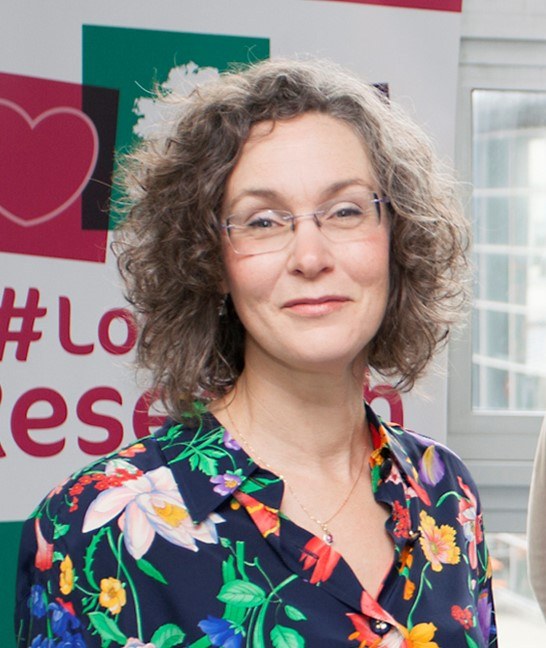
Dr Úna Kealy lectures in Theatre Studies and English in South East Technological University and, in recent years, Úna’s research has focused on the work of playwright Teresa Deevy. In addition to academic publications this research takes the form of rehearsed play readings and practical workshops. Úna’s research is driven by a desire to interrogate questions of identity, marginalization, social inclusion and exclusion and to work with colleagues in sister institutions, cultural organisations, independent theatre makers, cultural advisory bodies and policy makers so as to improve equality of opportunity and achievement for all who wish to work in the Irish cultural sector. A full list of publications, curated events and research events is found here.
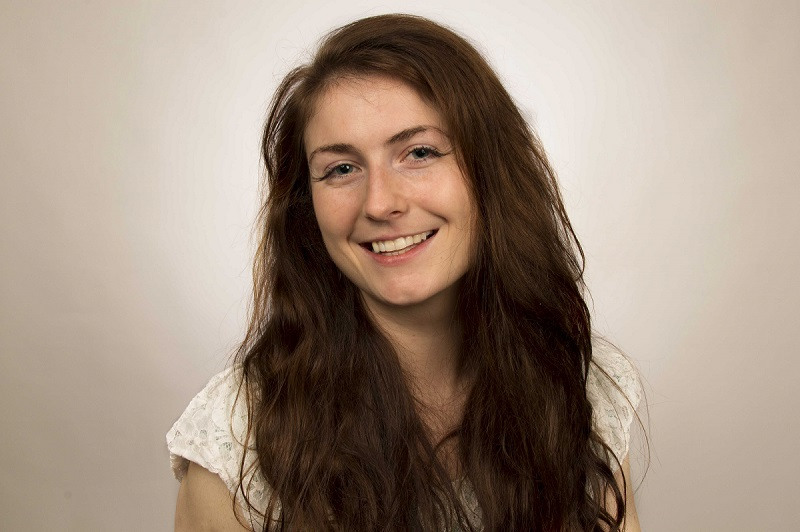
Dayna Killian is the PhD candidate for the ‘Performing Women’ project and an awardee of the SETU Waterford PhD Scholarship fund. Her research recoups the work of women playwrights who submitted work to the Abbey theatre prior to 1940. Dayna was a finalist in the ‘Making an Impact competition’ 2016, a Fulbright student at Notre Dame University in 2017, and was awarded second place in the ISTR New Scholar competition in 2018.
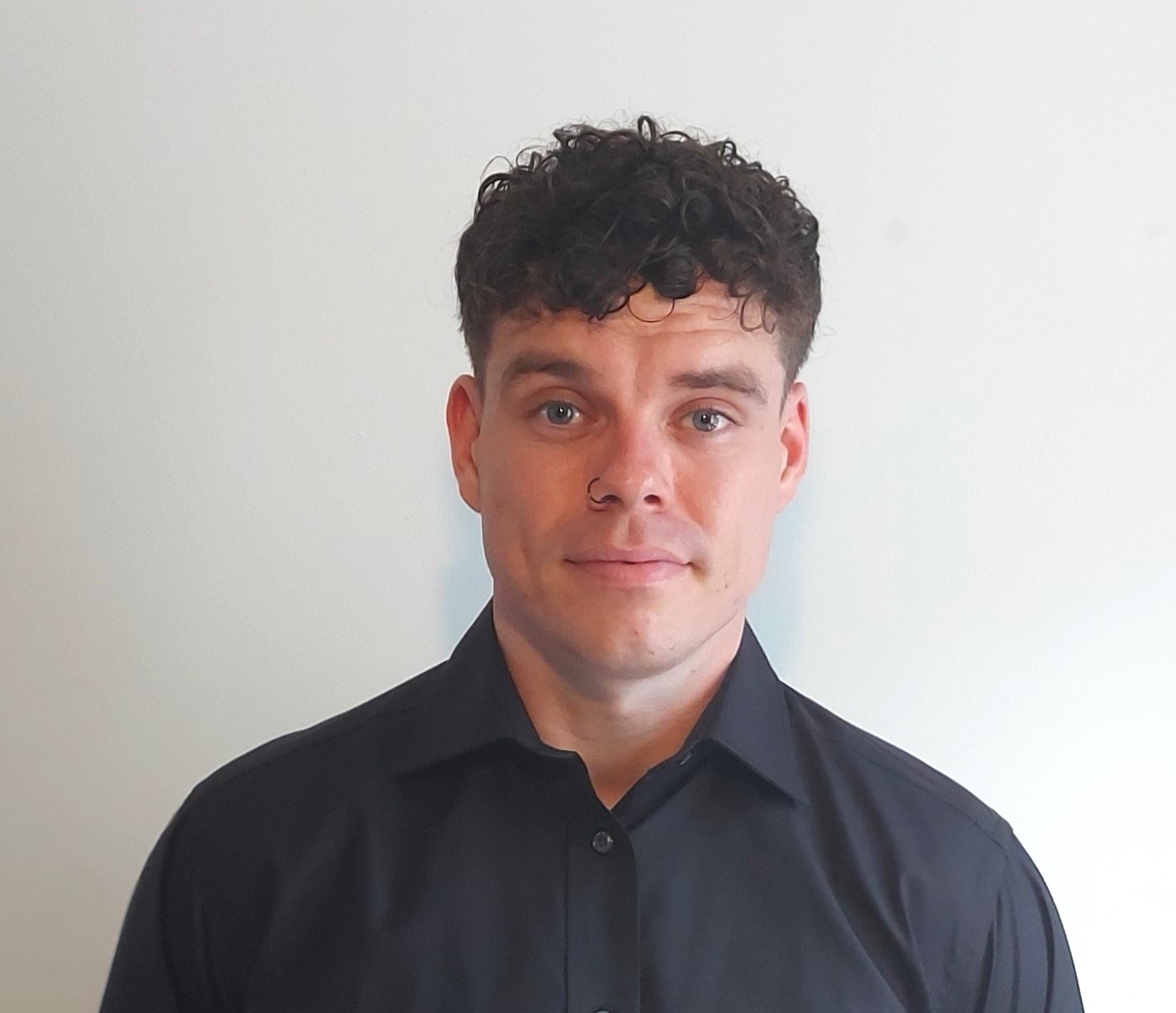
Aaron Kent graduated from Waterford Institute of Technology’s Bachelor of Arts programme in 2018 with a First Class degree. In the same year, an essay from Aaron’s WIT coursework received a commendation in The Global Undergraduate Awards. In 2020 Aaron collaborated with supervisors Dr Úna Kealy and Dr Kate McCarthy to begin a PhD project titled: Re-Shaping Narratives: An Analysis of Life and Culture as Dramatized by Irish Women Playwrights Following the Irish War of Independence, (1922 – 1959). This collaboration resulted in Irish Research Council funding under the Government of Ireland Postgraduate Scholarship call of 2020.
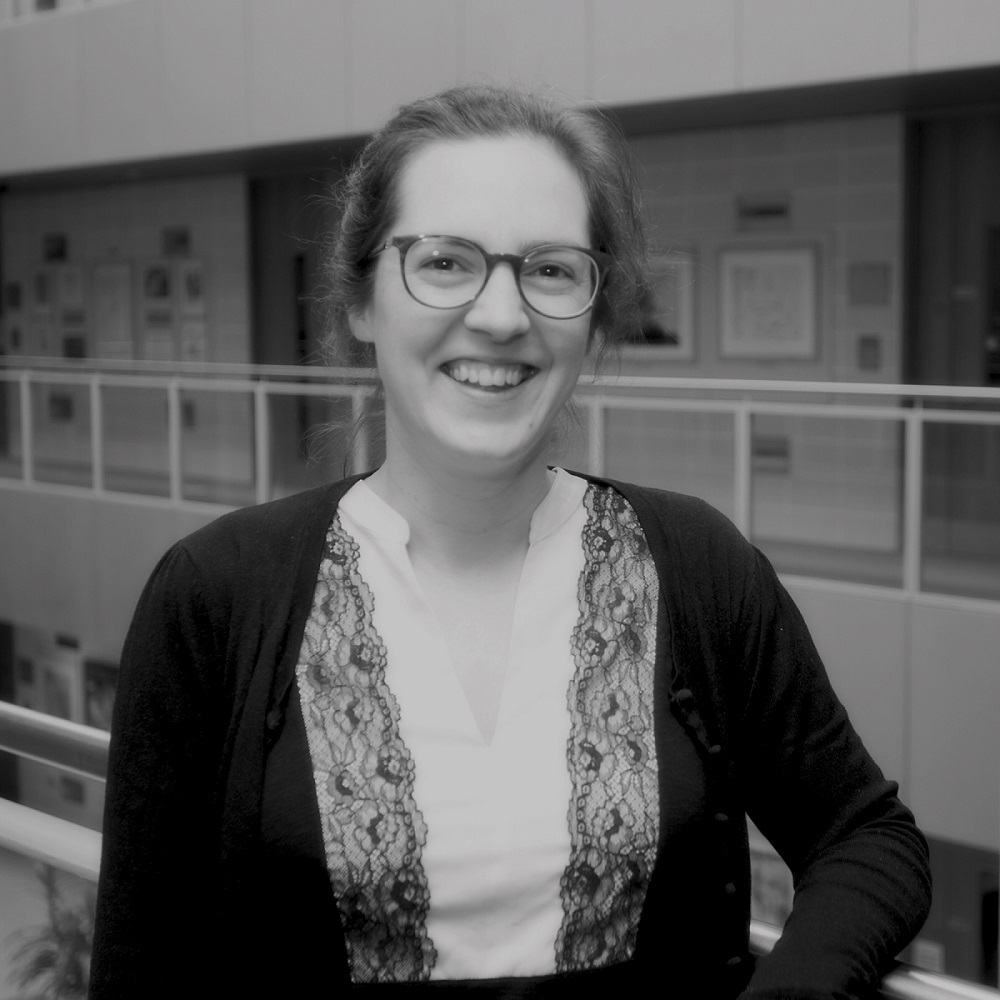
Dr Kate McCarthy lectures in Drama at SETU Waterford. Her research interests include: the arts and education; contemporary theatre practice, in particular participatory performance and live art; the work of Waterford playwright, Teresa Deevy; and Waterford’s Magdalene Laundry and Industrial School. Kate’s teaching, research, and practice explores and challenges exclusionary and gendered narratives. Her research outputs take many forms including: theatre practice, workshops, community engagement projects, public talks, podcasts, as well as publications. As a practitioner, Kate has facilitated and devised contemporary performance projects in Ireland and in the UK—ranging from youth theatre to site-responsive and street theatre to drama and theatre education projects. Kate’s professional profile is available here.
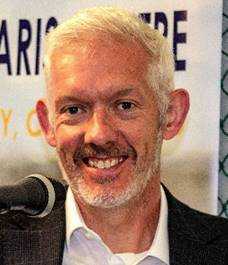
Dr Richard Hayes is currently Vice President for Strategy at SETU Waterford. He was previously Head (Dean) of the School of Humanities. He is a graduate of Maynooth University and University College Dublin, Ireland, from which he received a PhD for a thesis on American theatre. He has lectured in a number of higher education institutions in Ireland and abroad and has published articles and essays on many aspects of Irish and American literature and theatre. His research interests include regional theatre and regional arts, regional economic, cultural and social development, higher education policy and practice, and (more recently) urbanism. He is a board member of the Eugene O’Neill Ancestral Trust, Wexford, and of the Gallery of Modern Art (GOMA), Waterford.

Dr Christa de Brún lectures in English Literature in SETU Waterford. She holds a BA in English and Philosophy from UCD, an MA in Contemporary European Philosophy from UCD, an MPhil in Anglo Irish Literature from Trinity College Dublin, a PgDip in Applied Learning and Teaching from SETU Waterford and a PhD in Literature and Education from NUIM. An academic and a poet, Christa teaches mainly in the Department of Arts in SETU Waterford. She has published widely in the field of literature, critical consciousness and education and also has a number of creative publications.
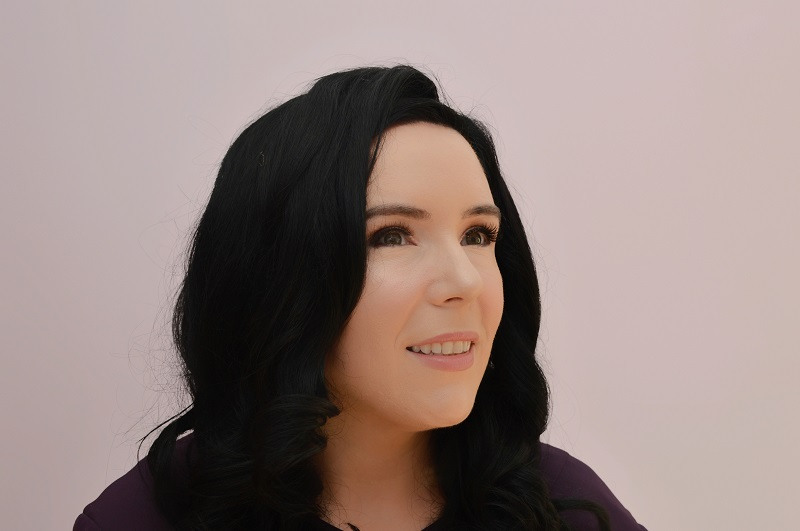
Dr. Fiona Ennis has won the Molly Keane Creative Writing Award and was one of the winners of the 2021 Fish Short Story Prize. Her fiction has been shortlisted for international literary awards, such as the Bristol Short Story Prize and the US-based Philosophy Ethics Short Story Competition, and her work has been highly commended in others, such as the Manchester Fiction Prize and the Seán O’ Faoláin International Short Story Competition. She has read her fiction at literary festivals such as the Write by the Sea Literary Festival, the Leicester-based #HomeByTen Festival, Waterford Writers’ Weekend, and the Immrama Festival. She holds a BA in English and Philosophy and an MA in English Literature and Publishing from National University of Ireland, Galway. She also has a PhD in Philosophy from University College Cork. She lectures in Literature and Philosophy in SETU Waterford.
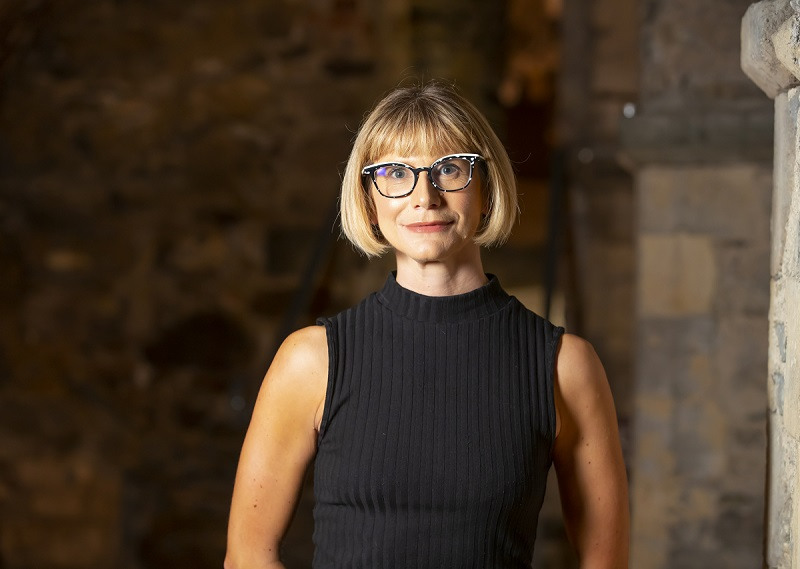
Dr Jenny O’Connor has a PhD in Film Studies and is a lecturer in English and Communications in the School of Humanities at Waterford Institute of Technology. A member of the Analysing Social Change research group, she is currently working within the Lyrical Bodies project, which involves students and staff from SETU’s School of Humanities, and Dublin Theatre of the Deaf, investigating Waterford playwright Teresa Deevy’s ballet Possession to explore and analyse ableism and gender discrimination towards the Irish Deaf community and Deaf woman via theatre practice research. Her role here is to use digital storytelling to document, reflect on and communicate the experience of the academic project.
Dr O'Connor is also a member of the Transnational Education and Community Health Collaboratory (TEACH CoLab), a global teaching project that connects staff and students in academia across two institutions (the University of Washington, and SETU campuses in Waterford and Carlow) and examines specific and pertinent health-related issues through a cross-cultural lens.
Since 2017, she has hosted the English at SETU podcast series The Nerve, and produces an average of five episodes per semester. It has featured interviews and discussions with students and staff of SETU, as well as world-renowned authors and scholars.
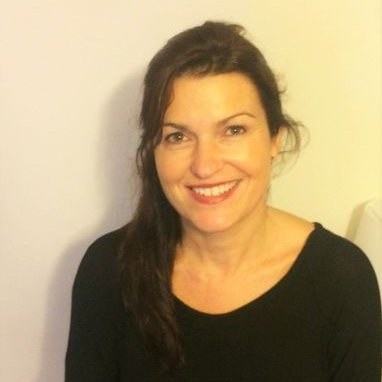
Dr Susan Flynn is Head of Department of Arts at South East Technological University. Susan holds a PhD in Equality Studies and is a Fellow of the Higher Education Academy UK. She has lectured, researched and led a number of projects centred on equality, diversity and inclusion, space and place. Susan has published in a wide range of academic journals and edited a number of books, including Equality in the City (Intellect, 2022); Surveillance, Architecture and Control, (Palgrave Macmillan, 2019); Surveillance, Race, Culture, (Palgrave Macmillan, 2018); Spaces of Surveillance, States and Selves (Palgrave Macmillan, 2017).

Dr Helena Walsh-Kiely is a lecturer in English language and Communications in SETU. She holds a Bachelor of Arts in Theology and English from the University of Limerick, a Higher Diploma in Education from the University of Galway, a Masters in Applied Linguistics from the University of Leicester (UK), and a PhD in Education from University College Cork.
The title of Helena’s PhD thesis is ‘From the Cradle of Islam to an Irish Campus: An Interpretative Phenomenological Analysis of Twelve Male Saudi Arabian Students on the King Abdullah Scholarship Programme.’ This ideographic and art-based research, using photo-elicitation, is centred on self-identity within a participant group of students at SETU. The study focuses on the students’ burgeoning global citizenship when physically distanced from Sharia law and birthright shaped by constitutive ideologies of religion, the ‘other’, profound collectivism and hegemonic masculinity. The students’ photographs comprise a research collection entitled Changing Worlds.
Helena’s research interests include further phenomenological study, the aim of which is to give traction to the internationalisation of university campuses, and the bridging of gaps between international cohorts and the campus community with a particular emphasis on the future mobility of students from so-called ‘closed cultures’.

Dr Ian Ó Catháin lectures in Modern Irish on the BA programme at SETU Waterford. He holds a BA(Hons) in Irish and Geography from Mary Immaculate College Limerick, a HDip in Education from NUI Galway, and a PhD IN Modern Irish from Mary Immaculate College, Limerick.
A well-known traditional Irish musician, Ian has travelled widely and given lectures on Irish culture and folklore, most recently in America and Poland. He has made numerous recordings for Clare FM, Raidió na Gaeltachta, and has appeared on TG4 most recently as a contributor to the Irish Folklore series ‘Béaloideas Beo’.
Ian’s research interests lie in Béaloideas with a particular interest in the folklore of west Connemara and the former breac-Ghaeltacht areas of west and north Clare, and the oral traditions that were passed down from generation to generation in those areas. He has published in Béaloideas – The Journal of the Irish Folklore Commission. Ian is currently working on a book based on the storytelling of Micheál Breathnach from Gleann Mhic Muireann, Connemara, and the work of the folklore collector Proinnsias de Búrca in the Connemara and Mayo Gaeltacht areas. In addition, he is currently researching the connections between the South East of Ireland and Newfoundland with a particular focus on native Irish speakers that left Ireland during the mass emigration of the 19th century.
Practice-led, Active & Creative Engagement (PLACE) Working Group
Researchers in PLACE create and investigate literature, dance, drama, film, and theatre practice investigating the power of narrative as it pertains to the self and social structures, and explore how stories are created and expressed through different media and genre.
Founded in 2012 as the Performing the Region project to critique and re-evaluate theatre practice of the region, the working group joined the Analysing Social Change research group within the School of Humanities in 2021 and formalised as the Practice-led, Active & Creative Engagement (PLACE) working group in 2022. An interest in, and active pursuit of, social justice, equality, and accessibility coheres researchers within PLACE as does a determination to pursue those interests through a variety of methodologies that prioritise aesthetic ways of knowing. Researchers within PLACE prioritise performative methodologies, using creative engagements to generate and articulate new knowledge as a means of supporting a more inclusive, diverse, and equal society. PLACE comprises early-career and established researchers and produces and shares scholarship in diverse ways including creative writing, digital stories, educational resources, podcasts, dance and theatre productions, conference presentations, and publications. PLACE researchers are committed to excellence in research and to modelling best practice in collaboration with the SETU student and research community and the creative artists and social actors with whom we collaborate.
PLACE is led by two annually rotating co-chairs. Co-chairs for 2022/2023 are Dr Helena Walsh-Kiely ([email protected]) and Dr Christa de Brun ([email protected])
PLACE Research Themes
- Arts practice and pedagogy in education settings
- Cultural histories of performance practices
- Feminist arts practice
- Irish theatre practice
- Narrative and social justice
- Regional arts practice and policy
Current Research and Publications Projects


